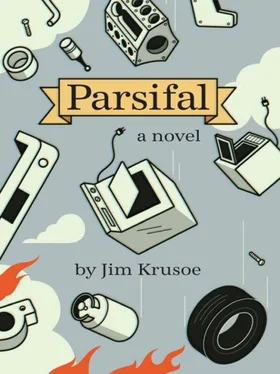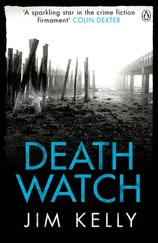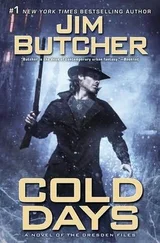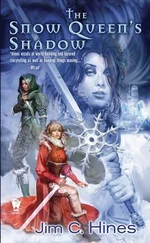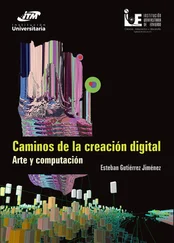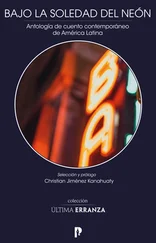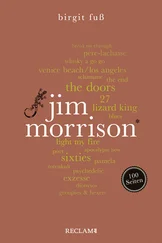Parsifal doubted Joe was right, but what choice did he have? Parsifal knew it was Joe’s right, as his therapist, to terminate their relationship, just as any parent can leave a child behind whenever he wishes. Parsifal was very sorry, of course, but that was that. He shut the door behind him, walked outside, and stepped over the beginnings of a small sinkhole that had begun to form at the foot of the stairs and that was probably caused by a leaking water pipe.
It was the last time Parsifal was to see Joe alive because, in what was an amazing coincidence, the following week when Joe left his office one night, the deficient-in-night-vision therapist stepped straight into a pit someone must have dug in front of the steps. Whoever they were — plumbers or construction workers — and whoever they had been sent by — Joe’s landlord (who claimed to know nothing) or the city — the men had left behind in the bottom of the pit several sharpened copper pipes that had been pushed into the earth so they were sticking straight into the air, one of which went right through Joe’s heart when he toppled onto it, still holding a bag of corn chips, completely unaware that the pit must have been dug while he had been inside his office, filling out Medicare forms or court papers, or doing whatever.
Parsifal felt sad, naturally, but couldn’t help wonder whether Joe might still be alive if he had not terminated their relationship prematurely, because if Joe had not, then Parsifal surely would have been able to warn him about those plumbers when he arrived for his appointment on that fateful night. Or possibly, if Joe had prolonged their conversation — something Joe claimed to enjoy while at the same time enforcing the limitations of what he called “the therapeutic hour”—and talked with Parsifal for just a short while longer, by then those plumbers would have returned and covered their dangerous pit with boards. Or at least removed those pipes.
Parsifal guessed that no one would ever know the answer to this for sure.
So Parsifal moved through the forest. Curiously, the result of having worn a blindfold for a while, and then not, was to see the world through different eyes (was his vision starting to blur?). Parsifal saw a colony of gigantic fungi in the shape of human hearts, red, fist-sized, and pulpy, throbbing in the leaf-filtered light. He saw a huge tree he could not name, but which was laden with small fruit, the size of figs, clearly rotting where they hung, refusing to drop. Instead, each liquefied from within, and at the bottom of each fruit its moisture collected into a single drop until, with a gentle plop, it fell to the barren ground around the tree. Parsifal walked up and touched the liquid at the tip of one of those fruits with his finger and put it to his mouth. It was not sweet, as he had expected, but salty.
Parsifal passed dejected willow trees, encountered a clump of bushes that hung their fuzzy heads in shame, strolled by a stand of agoraphobic alders, looked out over a small pond covered with a layer of hallucinated scum, climbed a low, repressed hill, kicked up a troubled patch of moss, passed beneath an anxious sycamore, a bulimic waterfall, an obsessive nest of wasps, a panicked porcupine, more than one repressed log, a paranoidal swamp, a narcissistic. . well. . narcissus, walked beneath a passive-aggressive set of overhanging branches, over an enabling path, through several patches of toxic poison oak, near a manic maple, and beneath a neurotic nuthatch fixated on something on a distant branch.
Was there a message here?
Probably. And if only Joe had kept him on as a patient, he might have been around to answer it.
Parsifal walked on.
Sometimes when Parsifal had a fever, Pearl would lay clumps of damp moss on his forehead and, if the fever was severe, also in his armpits and on his groin. The moss felt cool, and later, when it had absorbed his body’s heat, Pearl would return it to whatever place she had taken it from.
“For the next time,” she used to say.
And: “A person has to plan ahead.”
Not very surprisingly, not a single one of those plumbers, whoever they were, who had been responsible for Joe’s fatal accident ever stepped forward to admit his honest error.
Parsifal had not gone much farther in the forest when, putting his foot down into a small depression, he found it deeper than he’d judged and twisted his ankle. It hurt, so he took off his sock to look at it. The ankle was swollen and had already begun to change color, so he laced his boot slightly tighter to give it more support, and cut himself a new cane to use in walking. Somehow he must have left the last one behind when he removed the blindfold. He also took the time to change into a dry pair of socks. Then he ate half an energy bar, which took the pain away, and he began to travel again, but slowly. He had had enough. He resolved that the very second he came to the end of the forest, he would take the next bus home. Forget following the creek to the sea. Forget the door. Forget about Fenjewla — at least for now. He had made a reasonable try; there was no point in endangering his health over the matter.
Misty.
Above him, though the sky was clear, Parsifal still saw no sign of that persistent bird, or plane, or whatever it may have been.
Was he sorry to see it gone?
Almost.
When Parsifal was small enough that Pearl could hold him in her lap, they would sit waiting for Conrad to arrive home from the city where he had been staying in his comfortable but — he took pains to assure them — modest townhouse. While the two waited, Pearl sat on a swing made out of a log and two thick vines, and rocked quietly, holding Parsifal. Sometimes she sang, smelling all the while of fresh leaves and the flowers she had tucked into her hair to please Conrad, and Parsifal would fall asleep.
Of all the time he spent in the forest, this was his favorite.
The silence of a falling star
Once Pearl and Parsifal waited a whole month for Conrad to arrive with the antibiotics to treat a disease Pearl told Parsifal his father had accidentally passed on to her.
Lights up the purple sky
Pearl said that she held no grudges, and sometimes that was the price a man had to pay for having a secretary.
Fenjewla.
afountain pen forces no one to read its words.
A pen writes only as necessary, running out of ink every so often to remind a person he or she is mortal, and also to give the writer a little extra time to think about what to say next.
A pen does not censor the content of its writing.
A pen does not even need to use words but can write symbols and draw pictures.
A fountain pen needs no batteries.
A pen does not have to be plugged in and charged.
A fountain pen, no matter how beautiful it is, will lie humbly in a drawer until it is wanted.
A fountain pen, with just a little rinse now and again, will never need replacing, except for a new sac or piston seal every so often in the course of normal use, an easy enough job for a trusted person who repairs fountain pens.
The writing produced by a pen not only provides words but also gives insight into the character of the writer.
Treated carefully, a fountain pen will last for a long, long time.
Parsifal’s ankle was starting to hurt even more.
Sometimes he wondered if his mother could have been blind, because how else to explain her sending Parsifal out to find food while she stayed back in their small house made of branches, “tidying up”? How else to explain that when there were leaks and the rain or snow came inside, Pearl would have to wait for Conrad to return from the city or, when Parsifal was older, to have him climb up on the roof and repair the places where water got in? How else to explain the lack of mirrors, and Pearl’s reluctance to go far from the house (with the one disastrous exception of her following him out at the time of the forest fire) unless she was in the company of Conrad, and the fact that when Conrad would arrive from the city, carrying a sack of whole wheat, or chickpeas, or couscous, Pearl would tell Parsifal, “I hear your father coming,” and never say, “I see your father”?
Читать дальше
